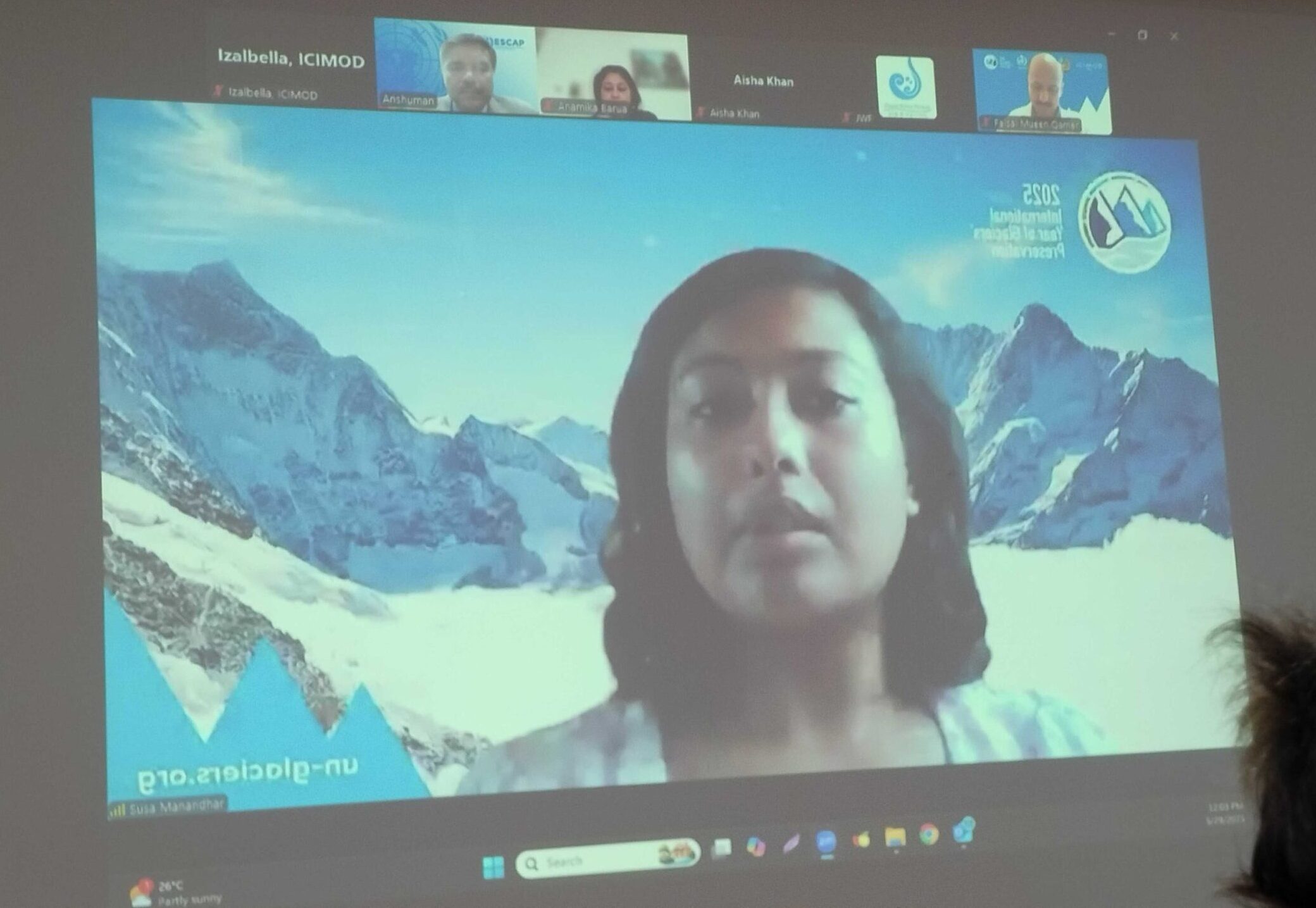The Small Earth Nepal (SEN) jointly with the Centre of Research for Environment, Energy and Water (CREEW), Central Department of Hydrology and Meteorology (CDHM), Tribhuvan University (TU), International Association of Hydrological Sciences (IAHS)-Nepal Chapter, Society of Hydrologists and Meteorologists (SOHAM) – Nepal, and UNESCO, organized the talk program by Dr. Bhanu Neupane (Advisor for Information Communication and Technology and Science, UNESCO) – “Are We Open Enough? Open Access and Climate Change” on 29 December 2022 at the Department of Hydrology and Meteorology (DHM), Babarmahal, Kathmandu.
The program was chaired by Dr. Madan Lall Shrestha (Advisor, SEN; Academician, NAST; Scientific Planning Group member, Asia Pacific Network for Global Change Research, APN) and moderated by Dr. Dhiraj Pradhananga (President, SEN; Associate Professor, TU). Dr. Hari Krishna Shrestha (President, SOHAM) welcomed all the participants and Dr. Rabin Malla (Executive Director, CREEW) introduced Dr. Neupane. The program gathered 50 professionals representing different institutions (government, international/non-government, universities, research institutions, and colleges).
Dr. Neupane is trained in hydrosystems, water resources management, and knowledge management. He has a Ph.D. in water resources management from Canada and a 2nd doctoral degree in Business Administration from the International School of Management, France/USA. He also works as a visiting professor and regularly teaches courses related to knowledge management, multi-criteria decision-making, water resources management, and DRR at Universities.
Open access data is findable, accessible, interpretable, and reusable. Such data helps in the free circulation of knowledge, experience, and scripts while creating increased publicity for the supplier. Open access data is important in the sector of capacity development, technology development, policy development, and resource sustenance. Reusability is the key vision for open-access data. Even in data-driven millennia, it can be seen that many institutions are unable to properly utilize the data provided.
Dr. Neupane shared an experience he gained during his week-long visit to the far west of Nepal where there were many cases of data gaps and hydro-meteorological data were not easily accessible. Access to data in the rural far west of Nepal is a very serious problem overlooked by many. Especially in the field of climate and weather, such disinformation can lead to a chain reaction of unfortunate events. According to Dr. Neupane, a large portion of the current world, rushes to create synthetic data just to keep up with the trend of open-access data. Such data does not truly show the true nature of the information hence leading to misinformation. Such data manipulation affects many smaller parties using such data. In the field of climate change, disinformation can lead to low acceptance of facts, a hindrance to urgent response, and the spread of panic.
Mr. Bikram Zoowa (Senior Divisional Hydrologist, DHM) mentioned that DHM is working on the open access data policy and may take a few more years to get developed. Dr. Mandira Shrestha (Programme Coordinator, Climate Services, ICIMOD) mentioned that ICIMOD has a Regional Database System (RDS) and suggested accessing them for different data. Ms. Sijal Pokharel (Natural Science Officer, UNESCO-Kathmandu) stated that data the sharing policy to be amended and expressed her willingness for the collaboration. In addition, Dr. Dhiraj Pradhananga and Ms. Sijal Pokhrel, shared collaboration opportunities for the UNESCO Chair on Mountain Water Sustainability. Finally, Dr. Madan Lall Shrestha gave his closing remarks emphasizing policy and legal framework for open data and that the institutions like DHM should work on providing openly accessible climate data to the public.

Dr. Bhanu Neupane giving his presentation

Participants in the talk program

Dr. Dhiraj Pradhananga moderating the program

Dr. Madan Lall Shrestha, chairing the program

Ms. Sijal Pokhrel in the discussion session

Dr. Mandira Shrestha with her remarks



